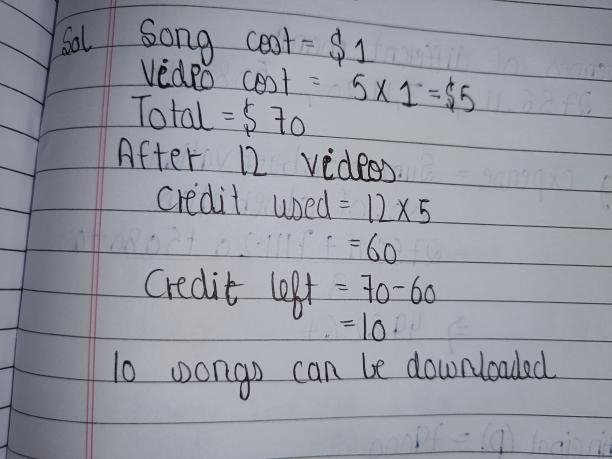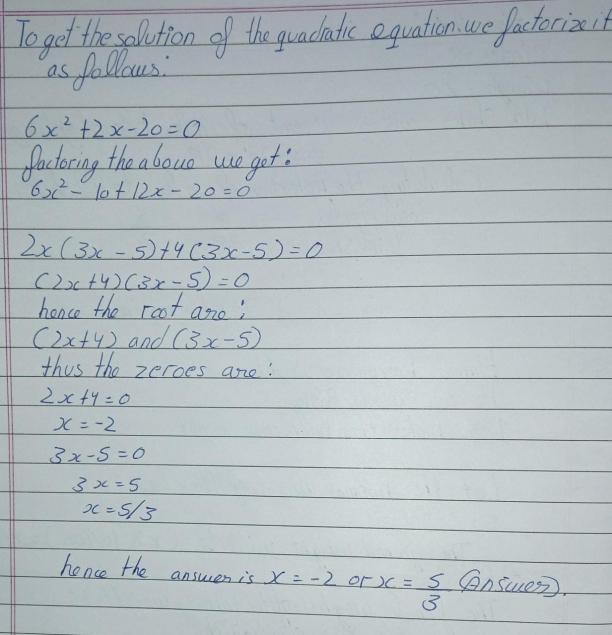 1
1 add up the given terms: 1024 + 25.6 + 0.256 + 0.001 = 1049.857
Step-by-step explanation:
The 5th power of a binomial is ...

For a=4 and b=0.02, the expansion is ...

Rounding to thousandths, the series is effectively truncated at 4 terms, so the 5th power of 4.02 is about ...
1024 +25.6 +0.256 +0.001 = 1049.857
 22
22 There are 5 + 1 = 6 terms in the binomial expansion of (1−0.02)5, and since the 4th term is approximately 0, the 5th and 6th terms are also approximately 0. So, approximate the value of 0.985 by adding the first three terms: 1 + (-0.1) + 0.004 = 0.904.
 5
5 See below. The result using the binomial theorem is 1049.8560 compared with 1049.8573 using a calculator.
Step-by-step explanation:
Binomial theorem:-
( a + x)^n = a^n + nC1 a^(n-1) x + nC2 a^(n - 2)x^2 +
(4 + 0.02)^5 = 4^5 + 5C1* 4^4 *0.02 + 5C2* 4^3* 0.02^2 + 5C3*4^2*0.02^3
+ 5C4 * 4 * 0.02^4 + 0.02^5
= 1024 + 5*4^4*0.02 + 10*4^3*0.02^2 + 10*4^2*0.02^3 + 5*4*0.02^4 + 0.02^5
= 1024 + 25.6 + 0.256 + 0.0000032
 22
22 There are 5 + 1 = 6 terms in the binomial expansion of (1−0.02)5, and since the 4th term is approximately 0, the 5th and 6th terms are also approximately 0. So, approximate the value of 0.985 by adding the first three terms: 1 + (-0.1) + 0.004 = 0.904.
 1
1 add up the given terms: 1024 + 25.6 + 0.256 + 0.001 = 1049.857
Step-by-step explanation:
The 5th power of a binomial is ...

For a=4 and b=0.02, the expansion is ...

Rounding to thousandths, the series is effectively truncated at 4 terms, so the 5th power of 4.02 is about ...
1024 +25.6 +0.256 +0.001 = 1049.857
 5
5 See below. The result using the binomial theorem is 1049.8560 compared with 1049.8573 using a calculator.
Step-by-step explanation:
Binomial theorem:-
( a + x)^n = a^n + nC1 a^(n-1) x + nC2 a^(n - 2)x^2 +
(4 + 0.02)^5 = 4^5 + 5C1* 4^4 *0.02 + 5C2* 4^3* 0.02^2 + 5C3*4^2*0.02^3
+ 5C4 * 4 * 0.02^4 + 0.02^5
= 1024 + 5*4^4*0.02 + 10*4^3*0.02^2 + 10*4^2*0.02^3 + 5*4*0.02^4 + 0.02^5
= 1024 + 25.6 + 0.256 + 0.0000032
SI=(P*R*T)/100
P=2000
R=1.5
T=6
SI=(2000*1.5*6)/100
=(2000*9)/100
=180
Neil will earn interest of 180
The answer is in the image


The answer is in the image

It will provide an instant answer!
